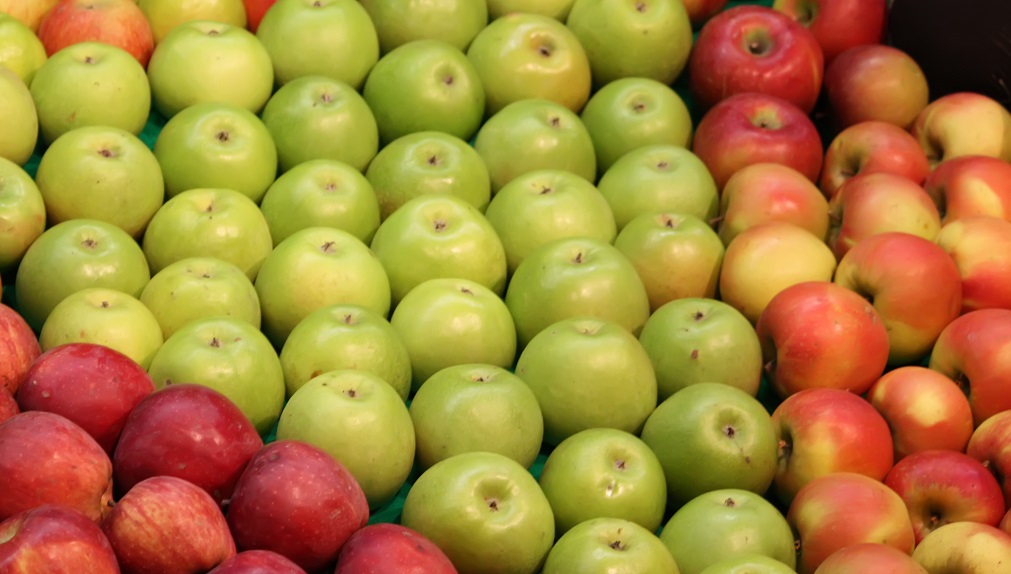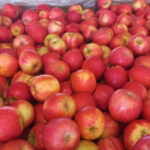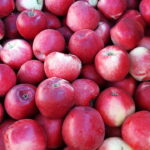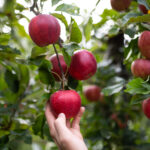U.S. fruit industry concerned over Mexican tariffs

(Update June 5: In a decree recently published by the Mexican Government, tariffs were imposed on apples and cranberries but there was no mention of grapes or blueberries).
The U.S. apple and grape sectors have voiced concern over the Mexican Government's recent announcement that it will impose retaliatory tariffs on the commodities. 
On Thursday U.S. President Donald Trump announced duties of 25% and 10% would be imposed on steel and aluminum imports respectively from Mexico, Canada, and the EU, leading to an angry response and threats of reciprocal measures.
Mexico said it would hit the U.S. with tariffs on numerous food products including apples, grapes, and blueberries, but did not specify when they might come into effect or at what rate they would be.
Apples are by far the biggest export commodity to Mexico of the three fruits. USDA data shows apple exports to the market last year totaled around US$275 million.
Table grape exports last year were registered at US$94 million, while blueberry exports were far lower at US$840,000.
Todd Fryhover of the Washington Apple Commission said on Thursday that the industry was in a "wait and see" mode as there was no official word on what rate the duty would be.
He added that Mexico is Washington's leading export market, with a value of US$215 million last season.
"Any duty, just like the ‘potential’ India duty, will be impactful – but how impactful will be determined once we have more details," he said, referring to India's recent threat to impose an additional 30% duty on U.S. apples.
Alexander Ott of the California Apple Commission said: "We are concerned about the tariffs from Mexico. It is always concerning that countries tie commodities to other industries as leverage."
"Mexico is the second largest export market for California apples and a significant market for other apple-producing states. The effects of U.S. Apples not being able to ship to Mexico due to high tariffs not only prevents agricultural to provide a healthy and nutritious product to consumers but may have an impact on other markets due to those apples not being able to ship into the existing markets.
"We hope there will be a quick resolution to the trade situation."
As for table grapes, John Pandol of California-based Pandol Brothers explained the state has recent experience with retaliatory duties on the issue of Mexican trucks operating in the U.S.
He said that a 45% duty caused California grape exports to the market to drop from 4.5 million to 1.5 million boxes several years ago.
"The multiple impacts of price pressure from Mexico and a larger percentage of the crop being channeled into the remaining markets spells a challenging season," he said.
"Many of us who think President Trump has done many positive things in many areas are confused on his foreign trade posture. In one meeting a grower stated, "we'll fall on the sword on the China deal but leave NAFTA [the North American Free Trade Agreement] alone."
"It is clear that those in our industry who dismissed fear of reprisals were mistaken. I'm watching a lifetime of market access work being thrown under the bus."
Canada also announced it would impose a 10% tariff on U.S. cucumbers. Last year the U.S. exported US$13.7 million of the vegetable north of the border, according to USDA data.
The EU and Canada later announced a list of U.S products on which they would increase taxes, both including orange juice on their lists.
Florida Citrus Mutual spokesperson Andrew Meadows on Monday said that the "vast majority" of the state's orange juice production is consumed domestically.
"Although I don’t know of a specific grower or processor who will be directly affected by the tariffs, Florida’s production has gone down drastically in the past decade due to hurricanes and disease so we have very little exports of Florida juice," he said.














































